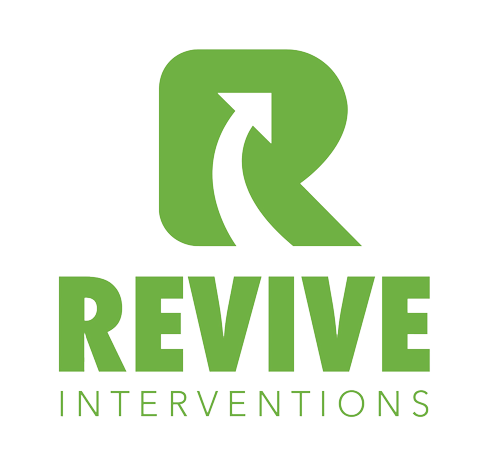How to Talk to a Drug Addict
- Home
- How to Talk to a Drug Addict

Revive is Dedicated to Helping Addicts and Their Loved Ones
For decades, those who struggled with addiction were seen as outcasts. They were those who made a conscious decision to consume drugs or drink alcohol. Addiction was viewed as a choice. It was a conscious decision over which the individual had complete and total control; at least in the eyes of society and most of the medical and mental health communities.
This misguided viewpoint of addiction led to significant stigma and years of difficulties accessing and receiving potentially life-saving addiction treatment for millions of people both in America and worldwide. Fortunately, as years have passed and science has progressed, we now have a better understanding of addiction and its impacts on the body and mind. Addiction is a disease, and just like many other chronic and debilitating diseases, addiction can be treated.
However, if you have a loved one who is struggling with addiction, it can be difficult to know how to talk to someone about their substance abuse. Where do you begin? Can you say? How can you have such a difficult conversation without triggering potentially negative emotions and results?
Request for Call Back
An Introduction to Addiction
In most mental health and addiction treatment settings, addiction is referred to as a substance use disorder. When described in the simplest terms, someone with an addiction to drugs (or alcohol) experiences a strong compulsion to get and use substances, despite knowing or experiencing ongoing adverse and potentially dangerous consequences. The ways in which society views addiction continues to evolve. A precise definition of addiction varies (often significantly) between organizations, the medical community, individuals, and society in general.
Despite varied viewpoints, addiction is considered a disease by several organizations, including the National Institute on Drug Abuse (NIDA), the Substance Abuse and Mental Health Services Administration (SAMSHA), and the National Institutes of Health (NIH). Addiction is considered a disease because it changes how the brain responds in certain situations. It can also result in physical changes to the structure and function of the brain. These changes are long-term and, in some cases, will persist long after someone has attained sobriety.
What to Do When You Realize
Your Loved One is an Addict
When you realize a loved one struggles with addiction, it is important to educate yourself about their struggle. Start by learning more about addiction and understanding the signs and symptoms you may have overlooked. It is important to be supportive but patient. It is okay to let them know you’re worried about them and that you’ve noticed they’re acting differently, but it is crucial to do so in a calm, compassionate, and non-accusatory way. Although you may be deeply concerned about your love life and desperately want them to seek help, it is important not to push if they resist. Instead, ensure that they know you are there to help when they are ready and that you are there to talk and provide support whenever they need it. Unfortunately, if your loved one is struggling with a significant addiction to drugs or alcohol, they may not be rational while they’re using, and it may take time and patience before they are ready to acknowledge their struggle with addiction.
You may also want to consider joining a support group for families who are dealing with substance abuse. Addiction is often referred to as a family disease because not only does it impact the physical and psychological health of the addict, but it also has a significant and overwhelming impact on their family and loved ones. A support group can help you to develop a deeper understanding of addiction, but it can also provide a strong peer support system of individuals who are sharing similar experiences.
Ryan Baum, pictured below, is dedicated to helping addicts and their loved ones form closer bonds and get the help they need through intervention.

How to Start the Conversation When Talking to a Drug Addict
No one intuitively knows how to talk to a loved one who is struggling with an addiction. Communication can be difficult if your relationship has been strained due to your loved one’s addictive behavior. It is important to express your concerns without making accusations, judgments, or being confrontational. One of the best ways to do this is to use statements that include “I,” as this does not put the blame on them. Instead, consider using statements that show you are concerned about their health. For example:
- I wanted to check in with you because you haven’t seemed yourself lately.
- I’ve noticed you’ve been acting differently lately, and I’m wondering how you’re doing.
- I’ve been worried about you lately.
- I’ve noticed you’ve been drinking a lot lately, and I’m wondering how you’re doing.
- I’ve noticed you’ve been using [insert drug name], and I’m worried about you.
Listen to your loved one in a supportive and understanding way. Although you may be frustrated, it is crucial to be patient and absorb what they are saying. Don’t worry about saying things perfectly. The most important message you can convey is that you are concerned for their health and safety. It is also a good idea to begin a conversation about your loved one’s substance use on “neutral” ground where everyone can feel comfortable.
Request for Call Back

How to Talk to an Addict
Although talking to an addict can often feel difficult, there are ways of communicating that frequently produce positive outcomes.
Be kind and compassionate
Your loved one’s addiction to drugs or alcohol may have led to significant emotional stress and difficulties in your relationship. You may be frustrated and even angry at your loved one, but it is crucial to be kind and patient for your conversation to be successful. By acting with kindness and compassion, you will help your loved one understand you want nothing more than to help.
Due to the significant stigma surrounding addiction, many who struggle with it come into conversations about substance use guarded. They are prepared to be insulted, belittled, or rejected even by family and friends. By showing you accept them, even if you do not accept their behavior, you can help them see the value in recovery.
Listen more than you talk
Someone battling the demons of addiction is far more likely to confide in you about their fears, needs, and struggles if they know you will listen without criticizing or interrupting. Again, even if you disagree with their behavior or actions, it is crucial to listen to their concerns and feelings. If your loved one can trust you to listen to them, they are more likely to turn to you to help them seek addiction treatment help.
Show love and concern
No matter how severe your loved one’s addiction, it is important they know you still love and care for them. Help them understand this is not a “free ticket” for bad behavior but that you have their health and best interests at heart.
Set boundaries
Although the physical and direct psychological impacts of addiction are often those experienced by the addict, the effects of addiction stretch far beyond the addict themselves. It is essential as a loved one trying to encourage someone to seek help, to set boundaries to protect yourself. It is OK to set limits and follow through with those limits if your loved one seems unwilling to change or if you feel you cannot provide ongoing support while they are actively engaging in addictive behaviors.
Help them seek treatment
Stigma and shame frequently accompany addiction. There are many, many obstacles your loved one may face on the road to seeking help, and many of these obstacles will inhibit their desire to or ability to seek potentially life-saving treatment. Offer to provide support in the form of researching treatment options. Offer to find and share with your loved one information on treatment centers in your area. If they decline to seek treatment, perhaps choose instead to seek help for yourself.
How Revive Interventions Can Help
The idea of an intervention may be confusing, and the popularity of intervention-themed reality shows in recent years has done little to shed light on how beneficial the intervention process can be for your family and loved ones. An intervention is not a specific event, but the process of helping someone struggling with addiction accept treatment, help them find the best treatment program to meet their needs, and continue to provide guidance throughout long-term recovery.
The main benefit of seeking an intervention to help your family is that the intervention expert or team at Revive Interventions is not a part of the family. The intervention specialist has not been part of the struggle, lies, and pain associated with addiction. They don’t feel drawn into the addict’s behavior, nor do they feel left out of critical situations or events because the addict chose not to provide vital details. The interventionist can help bring the complete picture of you or your loved ones struggling with addiction to light, which allows those first early steps of acknowledgment and acceptance to begin.
Another benefit to seeking intervention services at Revive Interventions is the benefit of third-party involvement. Someone who is not a family member can serve as a sounding board for the person struggling with addiction and their loved ones. Ongoing and long-term addiction often breakdown trust and make communication nearly impossible between loved ones in family members who have somehow been touched by addiction.
Many who struggle with addiction also experience overwhelming denial about the harm their addiction causes to themselves and their loved ones. An intervention is a way to help them understand how their behaviors hurt those they love while having a negative impact on their physical and mental health. The longer they continue to use, the more significant these impacts are. If you want to learn more about how an intervention could benefit your family, reach out to Revive Interventions today to learn more about how our caring and compassionate team can help your family start to heal.
